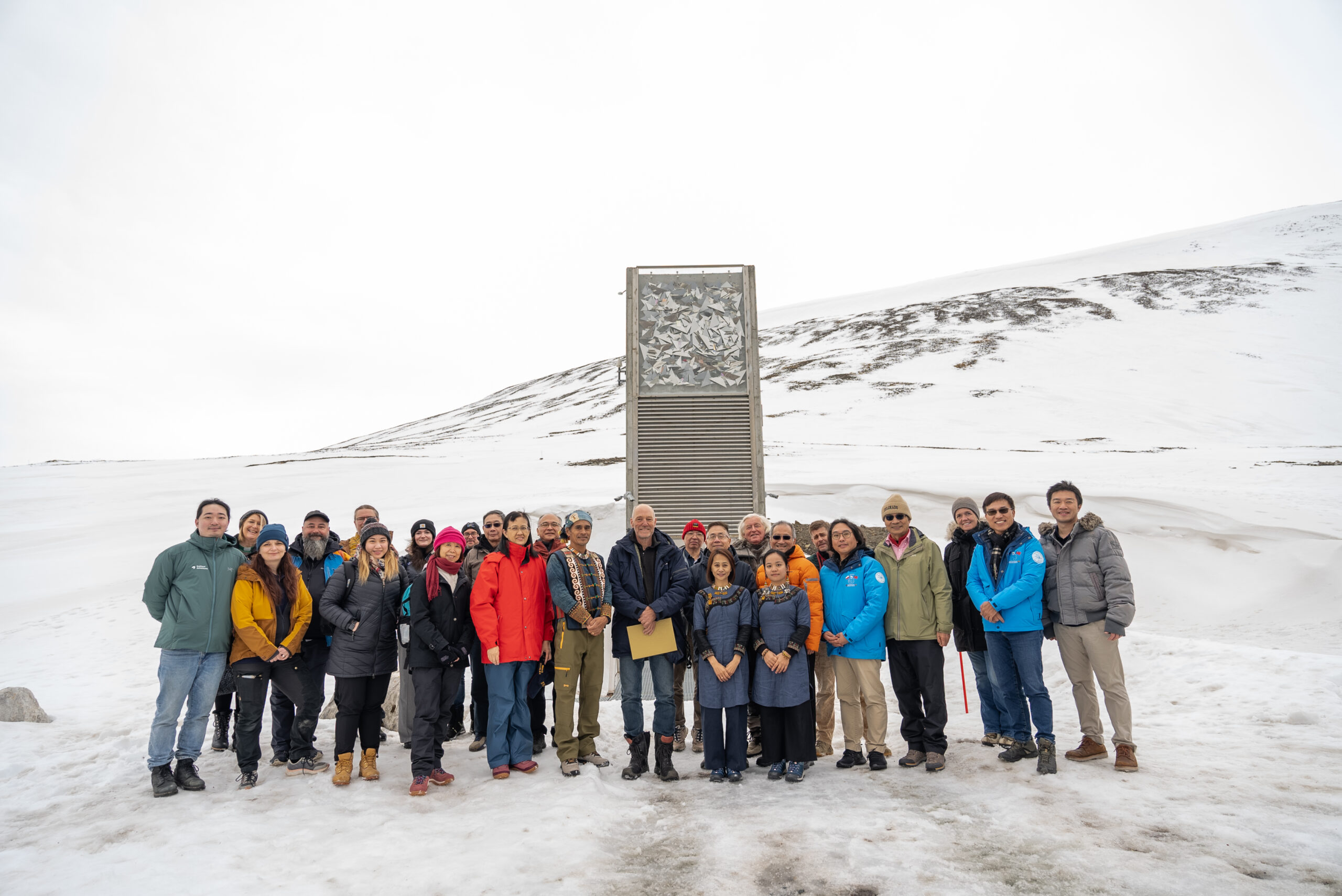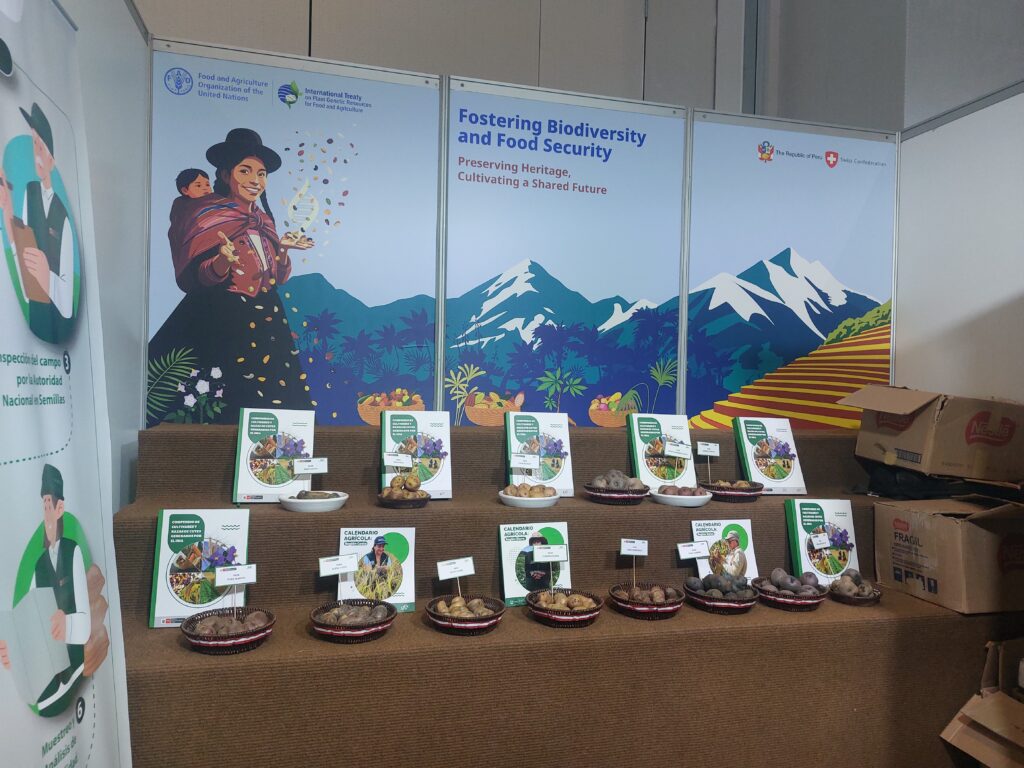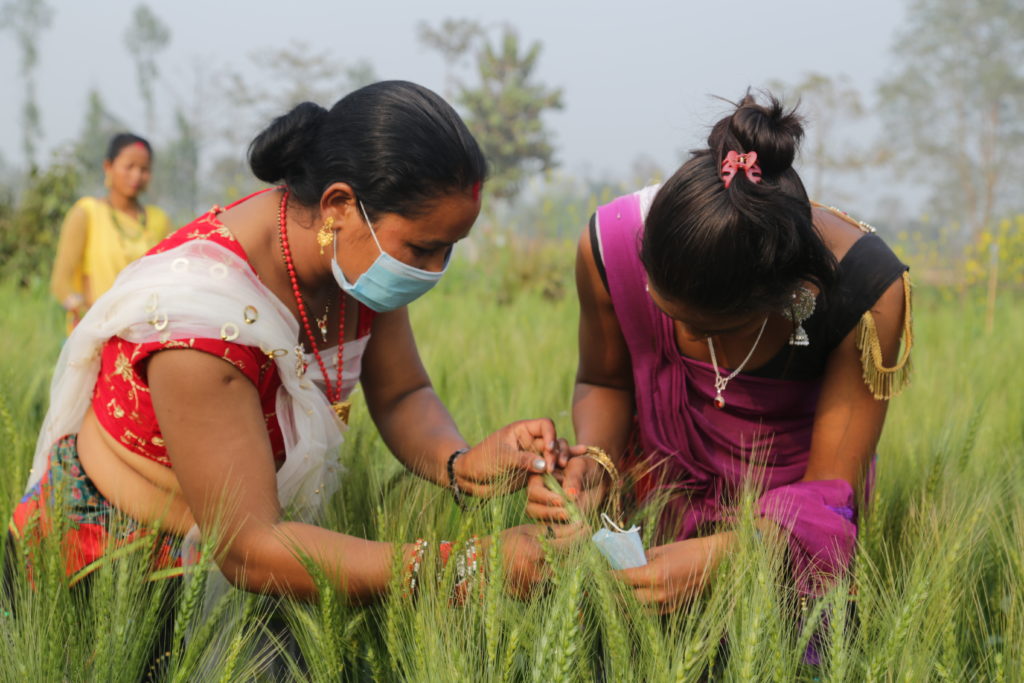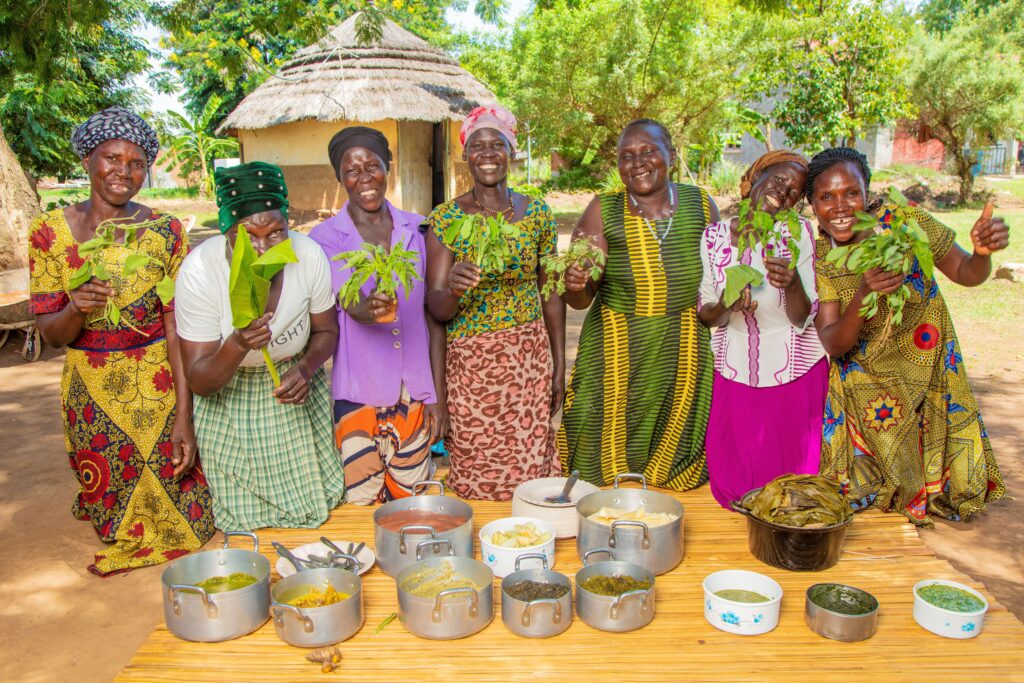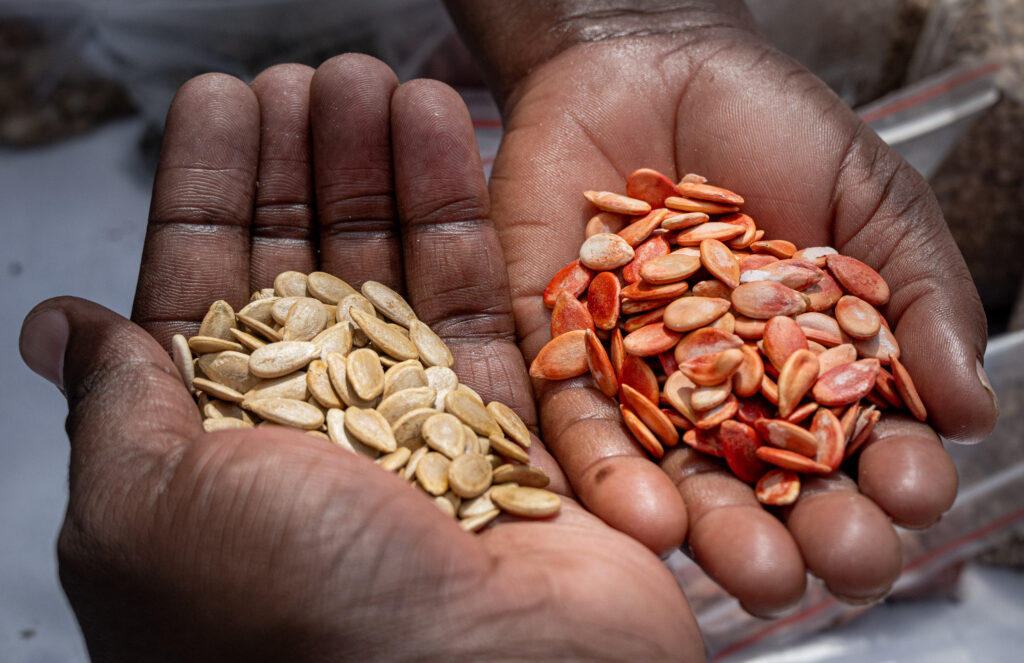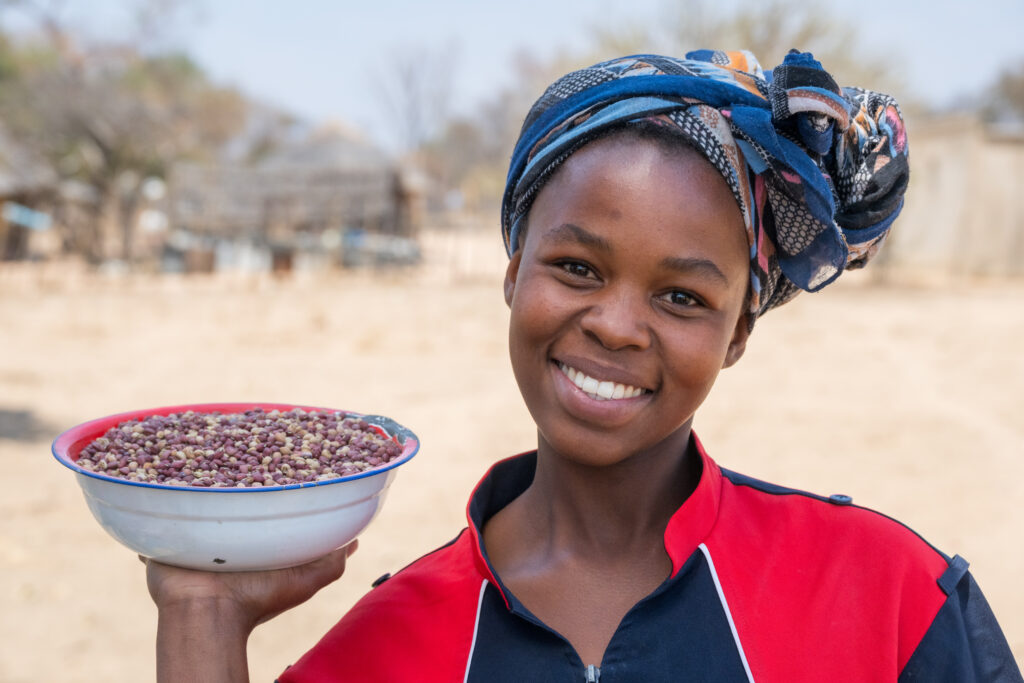On the 25th of February 2025, representatives from the National Gene Bank of Zimbabwe and Community Technology Development Trust (CTDT) deposited 1110 accessions of different crop varieties in the Svalbard Global Seed Vault, ensuring long-term conservation of important crop diversity. Some of these seeds came directly from farmers’ community seed banks, showcasing the value of their knowledge and active role in conservation and sustainable use of Plant Genetic Resources for Food and Agriculture PGRFA whilst creating resilient seeds. This achievement would not have been possible without the support of multiple actors who collaborated with farmers from local level implementation all the way to shipping the seeds to the Svalbard Gloval Seed vault. Through the Crop Trust supported Biodiversity, Opportunities and Livelihoods Development (BOLD) project, Zimbabwe marks its commitment to preserving agricultural heritage in the face of climate change and food security challenges. Oxfam Novib has worked hand in hand with Community Technology Development Trust (CTDT) for over two decades, promoting farmers’ knowledge and community seed banks. Below are three notable aspects of this important achievement.
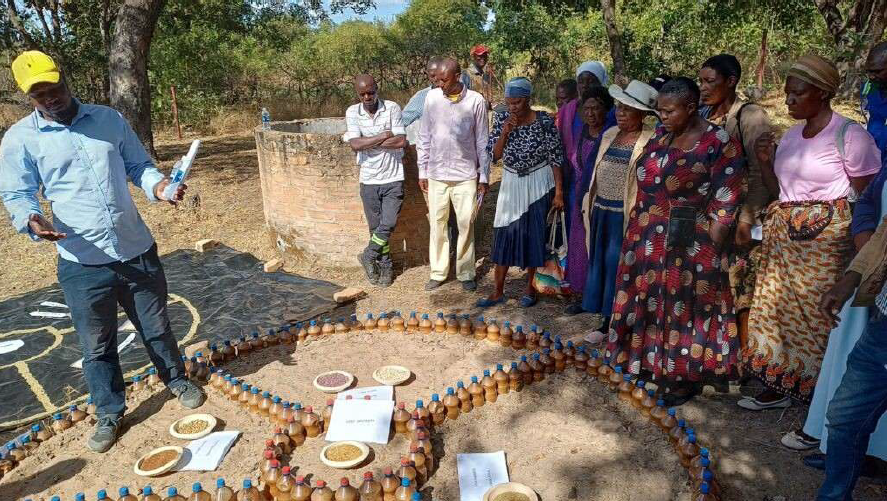
Showcase the Role of Farmers
This achievement is deeply connected to decades of work by farmers, community seed banks, breeders, and researchers who have safeguarded and improved local crop varieties through participatory plant breeding and seed conservation efforts. The Sowing Diversity = Harvesting Security (SD=HS) program as well as other initiatives have played a key role in strengthening these farmer-led conservation systems. Our partners Hans Geveling Foundation, Vivace Foundation, National Postcode Lottery and Books4Life provided funding to build and strengthen 8 Community Seed Banks in different communities.
Farmers, particularly women, are not just beneficiaries or seed consumers, but active contributors to biodiversity conservation, adapting seeds to local conditions, and ensuring food security for their communities. In the SD=HS programme, the main vehicle for farmers to improve their crops were Farmer Field Schools (FFS) which were linked to the Community Seed Banks. A total of 400 FFS actively took part in Participatory Variety Development (PVD) activities during the lifespan of the SD=HS programme. Over 100 of these FFS continue to carry out similar work in the current Cultivating Change (CC) and Books4Life projects which are on-going in 3 of the 7 districts that were part of the SD=HS programme.
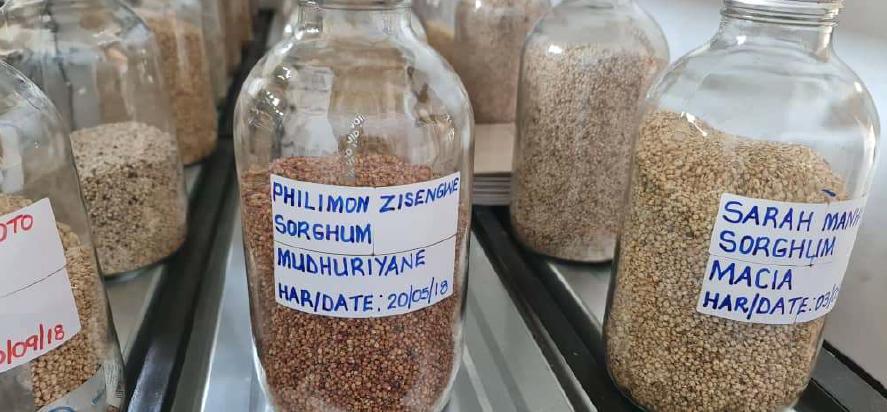
Farmers’ seed saving activities are crucial in maintaining diverse, climate-resilient seed systems. Having farmers’ seeds deposited in the national gene bank, as well as in the SADC-Regional and Svalbard Global Seed Vault, makes a case for community seed banks and the value of farmers everywhere in the world, who are involved in breeding resilient crops and safeguarding them. However, we must remember the farmers’ interest in storing seeds, is to have access to good quality seeds for the next season, or when disasters strike.
Partners at CTDT reported that SD=HS popularized Participatory Plant Breeding (PPB) in Zimbabwe to the extent that almost all breeding institutions, including the Ministry of Agriculture’s Crop Breeding Institute, CIMMYT and ICRISAT, have adopted PPB as part of their breeding programmes. A successful example of institutional change achieved in Zimbabwe, where the government is reviewing its agricultural extension policies and practices with a strong view to embrace the programme’s FFS approach at the national level as a vehicle for delivering its agricultural extension services. The government has pronounced the establishment of 35 000 FFS across the country as a matter of policy.
A Model of Institutional Collaboration
Zimbabwe’s success in securing crop diversity is a powerful example of collaboration between farmers, the national gene bank in Zimbabwe and the regional gene bank in Zambia, NGOs, academia, breeders from the government Crop Breeding Institute (CBI) and international research organizations (ICRISAT and CIMMYT). It takes all these actors to be able to work together, over the course of many years and for the long-term, to uplift and recognize farmer managed seed systems. Some actors work on implementation and capacity building of farmers, breeders and agriculture extension workers, others delve into research of crop varieties, others facilitate dialogue and collaboration between researchers and farmers. Many stakeholders work on policy at national, regional and international levels to establish legal frameworks that allow for the registration and marketing of seed varieties kept and developed by farmers themselves. Together, these actors show how to implement the FAO International Treaty on Plant Genetic Resources, ensuring that plant genetic resources remain available for future generations.
Here is a sneak peek into a visit of one of Zimbabwe’s community seed banks and the national gene bank.

Global and Local Action Must Go Hand in Hand
A lot of attention around Zimbabwe’s deposition of seeds in the Svalbard Seed Vault highlights how local efforts contribute towards global achievements. While depositing seeds in the world’s largest seed vault is a critical step for global conservation, it is equally important to continue strengthening farmer-led seed systems on the ground. All actors must continuously work together to establish an enabling environment and recognition of farmer seed systems. Zimbabwe’s effort gives hope, since 2022, the Ministry responsible for Agriculture in Zimbabwe is committed to adopt the Farmer Field School approach as one of the key extension methodologies, where master trainers and facilitators will set up 35.000 FFS across the country. “The target is to have an FFS in each village so that farmers become self-sufficient in terms of seed” said Professor Jiri from Ministry of Lands, Agriculture, Fisheries and Rural Development in Zimbabwe. The FAO Plant Treaty provides a framework for this collaboration of key stakeholders, supportive policies, and institutional commitment to fully empower farmers in crop biodiversity conservation and climate adaptation.

Concluding thoughts & way forward
Zimbabwe’s crop deposition of seeds in the Svalbard Global Seed Vault is not just a technical achievement but rather a testament to farmers and the power of institutional partnerships. When farmers, researchers, policymakers, NGOs and government institutions work together, they create resilient and sustainable seed systems that support both local livelihoods and global food security. This collaborative model is essential in making the FAO Plant Treaty’s vision a reality—ensuring that seeds remain in farmers’ hands while being safeguarded for future generations. Oxfam Novib remains committed to this important work through its multiple efforts that build on the foundation of past work. For example, Cultivating Change in a Warming World programme strives for a fair, food secure, resilient, and sustainable future for rural women and their communities.
